Table of Contents
Destroy An Engine Without Evidence
In an automobile, the engine plays a key role in providing a smooth and efficient driving experience. Unfortunately, some individuals may intentionally try to damage an engine without leaving any evidence behind. In this blog post, we aim to raise awareness about methods that can destroy your car engine without any evidence, and provide some tips in the end. Let’s get started:
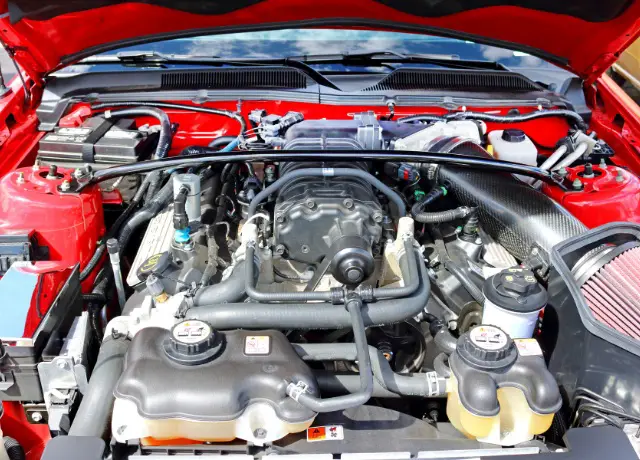
How To Ruin An Engine Without Evidence | Common Methods:
Following are the 11 ways that will lead to undetectable engine damage.
Water in the Gas Tank: A Silent Killer of Engines
As a car expert, I can’t stress enough how harmful water in your gas tank can be to your vehicle’s engine. It may sound surprising, but even a small amount of water can wreak havoc on an engine, requiring costly repairs or, in the worst cases, an entire engine replacement.
The gas powers your vehicle’s engine in your tank, and the gas combusts to power it. However, unlike gasoline, water isn’t combustible. When water enters your gas tank, it displaces the gasoline, which causes your engine to stall and sputter.
There is more to the problems than that, however. During combustion, a fine mist of gasoline is sprayed into the combustion chamber by fuel injectors. The injectors are designed to handle gasoline, not heavier water. A vehicle’s performance can be impacted if water clogs or damages its injectors, resulting in a lowered performance.
Furthermore, water in the gas tank may cause corrosion in the fuel lines and other fuel system components, allowing fuel to leak out and potentially resulting in a dangerous situation.
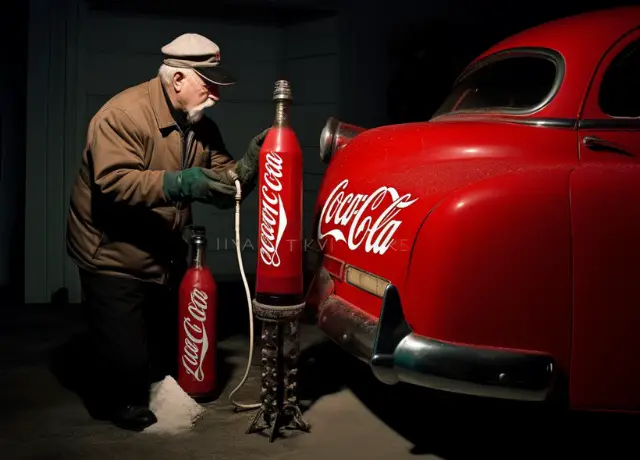
Coke in the Gas Tank: A Recipe for Disaster
Coke or sugary beverages may sound harmless, but they can ruin your engine if they’re poured into your tank. While the sticky sweetness might be delightful to our taste buds, it is far from delightful for the intricate mechanisms that keep your vehicle running.
Coke mixes with gasoline when you add it to your tank, creating a sticky, thickening substance. A syrupy concoction like this is far more difficult to process than pure gasoline for the vehicle’s fuel system. It can clog up the fuel injectors, leading the engine to sputter, stall, or even perform poorly.
It doesn’t end there. The high sugar content in Coke is the easiest way to destroy a car, because it builds up deposits on engine parts, causing them to work less efficiently and possibly causing damage in the process.
In addition, Coke’s corrosive nature can lead to early wear and tear of metal fuel system components, leading to leaks. This can create dangerous conditions.
Brake Fluid in the Gas Tank: An Engine’s Worst Enemy
Undetectable engine damage can occur if you introduce the brake fluid in the gas tank.
Brake fluid is essential for your vehicle’s braking system, however it should not be used near the fuel system. The combustion process in your engine can be interfered with because it has different properties from gasoline.
The engine can run unevenly or even stop if brake fluid is mixed with gasoline. Adding brake fluid in the gas tank can cause leaks and blockages, leading to engine failure without trace. Over time, brake fluid can clog the engine, reducing its effectiveness and causing lasting damage.
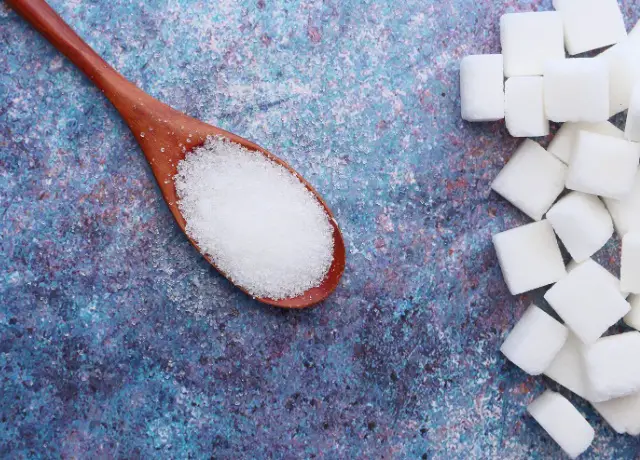
Sugar in the Gas Tank: A Sweet Disaster for Engines
It has been an age-old act of sabotage to add sugar to a gas tank and there is a good reason for it. The innocent appearance of sugar hides the fact that it can cause severe damage when it is introduced into a vehicle’s fuel system. Gasoline won’t dissolve it, so it clogs up important engine parts by forming a sticky, syrupy sludge.
This thick mixture can clog the fuel filter, which catches dirt in the gasoline before it gets to the engine. If the fuel pump becomes clogged, it has to work harder, which can lead to early failures. If this sugary mixture reaches the injectors, it can block them. Sugar can build up dirt on engine parts as well, such as pistons and cylinders, over time.
This build-up can make hot spots in the engine, causing inefficient burning and possibly the easiest way to destroy a car.
In short, while sugar is nice in a dessert, it’s bad in a gas tank.
Bleach in the Gas Tank: A Catastrophe Waiting to Happen
When bleach is mixed with gasoline, a chemical reaction occurs that causes havoc with a vehicle’s fuel system. Bleach is an excellent substance for household cleaning and laundry, but it presents a major danger when it comes into contact with a vehicle’s fuel system.
Using bleach effectively oxidizes fuel, causing rust to develop in the fuel system. This rust will cause undetectable engine damage from the fuel tank to the fuel lines to the injectors, damaging everything. If fuel leaks onto hot engine components, this corrosion can result in leaks, causing dangerous situations.
Also, bleach can damage engines in a significant way. Adding bleach to a gas tank is an act of extreme sabotage that can result in extensive, costly damage. It can break down the oil film that lubricates the internal engine parts, leading to increased friction, overheating, and severe engine damage. The engine may stall, fail to start, or even seize.
Draino in the Gas Tank: A Corrosive Calamity for Engines
A highly corrosive substance, Draino, is known for its potential to unclog drains, but when introduced into a vehicle’s fuel system, it can cause catastrophic damage. Although its chemical composition is designed to break down organic matter, the results can be catastrophic if it comes into contact with fuel and metal components.
In addition to eating away at the fuel tank, fuel pump, and fuel lines, Draino has a corrosive nature that can cause leaks. Moreover, corrosion can cause highly flammable fuel to come in contact with hot engine parts.
The corrosive substance can degrade the engine’s cylinders and pistons, leading to increased friction, overheating, and ultimately, engine failure.
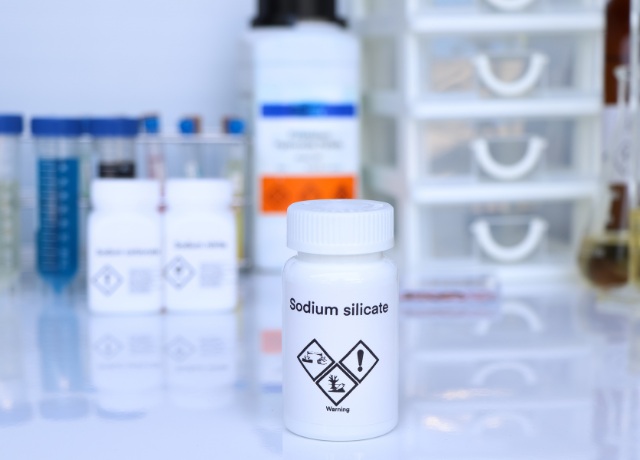
Sodium Silicate in the Gas Tank: A Blockage Nightmare for Engines
This liquid glass, also called sodium silicate, has a unique property that is harmful to engines. When it reacts with moisture, it solidifies and can destroy a car without leaving evidence.
If the moisture in gasoline is mixed with sodium silicate, the problem will arise. When it solidifies, it forms a glass-like substance that clogs up the entire system.
This includes the fuel tank, the fuel lines, the fuel pump, and the injectors. These blockages reduce fuel flow to the engine, causing it to run lean (too much air, not enough fuel).
The hard, glass-like substance can score the insides of the cylinders, leading to increased friction and wear. Consequently, the engine can perform poorly, including misfiring, losing power, and stalling or not starting.
Flour in the Gas Tank: A Recipe for Engine Disaster
Although flour looks harmless, it is not combustible and can result in serious engine damage if it finds its way into the fuel system.
When flour is added to the gas tank, it gets mixed with the fuel and travels through the fuel system. The flour particles can clog the fuel filters, fuel lines, and injectors, causing the engine to run poorly.
It can even cause the engine to stall or fail to start, resulting in misfires, power losses, and clogged fuel lines.

Alcohol in the Gas Tank: A Damaging Cocktail for Engines
It is common to use certain types and amounts of alcohol in fuels, such as ethanol, but excessive amounts can negatively impact engine performance. A high concentration of alcohol can harm engine seals and gaskets, which are vital to engine performance.
In high quantities, alcohol can dry out and deteriorate rubber and plastic components of an engine, including seals and gaskets, because it is a solvent. The engine cannot effectively prevent the leakage of fluids once these components have been compromised.
As a result, oil or coolant leaks may occur, which can lead to overheating, poor lubrication, and failure of the engine if left untreated.
Furthermore, alcohol’s high oxygen content can make the engine run leaner (more air than fuel in the air-fuel mixture), resulting in higher combustion temperatures and increased cylinder pressure. In the long run, this can damage the cylinder walls, pistons, and valves of the engine.
Soap in the Gas Tank: A Foamy Fuel System Nightmare
As an unconventional engine sabotage technique, introducing soap into a vehicle’s gas tank can result in excessive foaming of the fuel system. This can subsequently decrease engine performance and could cause engine damage.
When soap is added to the fuel tank, it reacts with the gasoline to create a large amount of foam. The foamy mixture then circulates throughout the fuel system, resulting in several problems. As a result, the fuel filter, fuel lines, and injectors can become clogged, preventing the engine from receiving adequate amounts of fuel.
Consequently, an engine can run lean (too much air, not enough fuel), causing poor performance, misfires, loss of power, and possibly stalling or failing to start.
In addition to these problems, the foam can displace the fuel in the system, meaning the engine may not receive the amount of fuel it needs to operate correctly. This can also lead to a lean condition, which increases the temperature and pressure within the engine’s cylinders.
So, if you are looking for how to seize an engine undetected, soap is your answer.
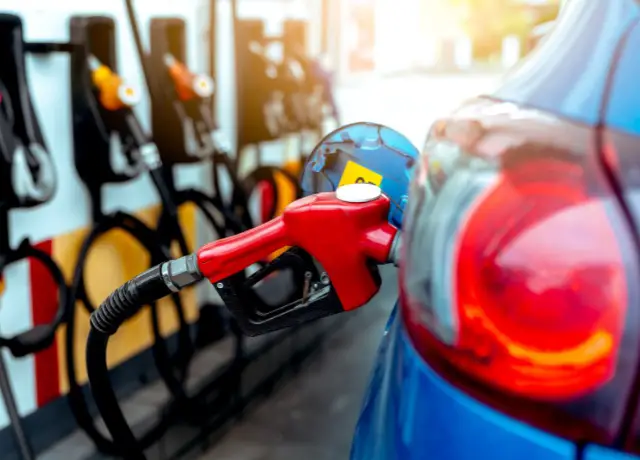
Wrong Fuel in the Tank: An Engine’s Worst Nightmare
Fueling an engine incorrectly can lead to a host of problems, including engine misfires, knocking, and other detrimental effects. An engine is designed to run on a specific type of fuel.
If you are looking for how to ruin a diesel engine without evidence, you’ve got the answer.
When diesel fuel is injected into a gasoline engine or vice versa, it will not ignite properly, resulting in misfires. If diesel fuel is injected into a gasoline engine, it can have immediate and severe consequences.
It can result in significant wear and tear on internal engine components, such as pistons and cylinders. However, it can cause the engine to knock if gasoline is used in a diesel engine.
Diesel engines are damaged when gasoline is burned too quickly, causing premature combustion and a knocking sound. This ultimately leads to broken pistons and bent connecting rods.
The engine can also knock and ping if you use lower octane gasoline than what’s recommended for your vehicle because the fuel-air mixture in the cylinders prematurely detonates.
To maintain the performance and longevity of your vehicle, it is important to always use the right type of fuel. Over time, this can also result in serious engine damage.
Actions to Take if You Suspect Engine Damage
If you suspect that your engine has been tampered with or damaged, it’s crucial to take appropriate actions to minimize further harm:
Diagnosing Potential Engine Damage: Heed the Warning Signs
It’s essential to keep a keen eye out for any warning signs that may validate your concerns, such as unusual sounds, reduced performance, or noticeable changes in fuel economy.
Often, the first sign of trouble is unusual noises coming from the engine. These might include:
- Knocking
- Hissing
- Rumbling Sounds
Reduced performance is another indication of possible damage.
In addition, you may notice sluggish acceleration, difficulty starting the car, or even stalling in mid-drive. Last but not least, if your vehicle’s fuel efficiency decreases, the engine isn’t functioning properly.
It is advisable to consult an experienced mechanic to determine the state of your engine accurately. These symptoms alone cannot provide a definitive diagnosis, as they indicate something might be amiss, not conclusive evidence that it has been damaged.
Seeking Professional Assistance: Consult a Professional Mechanic
You should seek professional help if you observe any of these warning signs. Professional mechanics are knowledgeable, experienced, and equipped with the right tools to diagnose engine problems.
To pinpoint the source of a problem, mechanics can perform a variety of diagnostic tests. As part of these tests, fluid levels, mechanical components, and advanced diagnostic equipment can all be checked to see if there are any electrical or computer-related issues affecting the engine’s performance.
You can avoid more serious (and expensive) problems down the road by consulting a professional mechanic early if you want to make sure your engine’s problem is accurately identified.
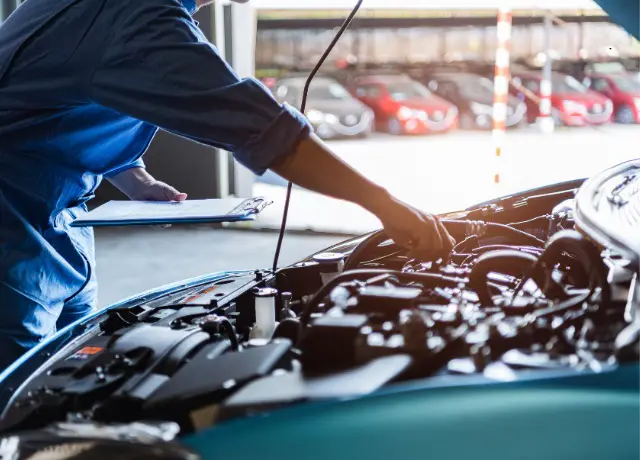
Tips for Preventing Engine Damage
Prevention is the key to safeguarding your engine from damage. Consider the following tips to maintain its longevity and performance:
Regular Maintenance is Key:
It is crucial to follow the manufacturer’s guidelines for routine maintenance to keep your engine in top shape and extend its life. Regular oil changes, filter replacements, and scheduled inspections can all contribute to keeping your engine in top shape.
Additionally, routine checks can catch potential problems early before they escalate into more serious ones.
Follow Manufacturer Guidelines for Fuel Type:
Use the recommended fuel grade specified by the vehicle manufacturer to maximize the performance of your engine. You should always use the recommended fuel grade for your vehicle.
When you use the incorrect type or grade of fuel, you may experience engine misfires, knocking, and other potential problems that could cause damage over time.
Avoid Introducing Foreign Substances into the Gas Tank:
You should be careful when refueling your car to ensure that no contaminants are introduced. Even small amounts of dirt, dust, or the wrong fuel type can cause serious problems.
It is important to keep the fuel pump and nozzle clean and avoid refueling immediately after the tank has been filled since sediment can be stirred up as a result.
Fuel Up at Reputable Stations with Quality Fuel:
You should always choose a gas station that offers high-quality fuel, free of impurities, to prevent engine damage. A gas station with poor fuel can result in engine problems caused by impurities.
Keep an Eye on Your Oil Levels:
A regular check of your engine’s oil level is essential. An engine oil level that drops too low could result in insufficient lubrication and potentially severe engine damage. Engine oil provides lubrication for the internal components of the engine, preventing excessive wear and tear.
Consult a Trusted Mechanic:
Lastly, establish a relationship with a reliable mechanic who can offer expert advice and handle any concerns quickly. This professional relationship can be invaluable in maintaining the health of your engine.
It will allow you to perform regular inspections, diagnose any problems accurately, and carry out necessary repairs or maintenance.
FAQs | Destroy An Engine Without Evidence:
Q: Is it possible to repair engine damage caused by these methods?
Ans: In most cases, engine damage can be repaired, but its extent and cost will be determined by how severe the damage is. There are simple fixes for minor issues, while more severe damage may require a comprehensive engine repair. The best way to avoid engine damage is to maintain and care for it regularly.
Q: Could engine damage be indicated by any warning signs?
Ans: Yes, there are several signs that your engine may be damaged. There are many signs, including:
Knocking or hissing
Sluggish acceleration
Difficulties Starting
Reduced fuel efficiency
It is advisable to schedule an inspection for your vehicle as soon as possible if you notice any of these symptoms.
Q: When should I have my engine inspected?
Ans: According to your vehicle’s make, model, age, and driving habits, engine inspection frequency can vary. However, you should generally follow the inspection schedule outlined in your vehicle’s user manual.
Inspecting your vehicle regularly can help catch potential problems early before they become major ones. This can include routine checks at certain mileage or time intervals.
Q: Is there a way to prevent my engine from being damaged?
Ans: Regular maintenance, including frequent oil changes, filter replacements, and following the manufacturer’s recommended schedule, will help prevent engine damage.
The manufacturer of your vehicle specifies the appropriate fuel type, so make sure you avoid aggressive driving habits.
Q: Is aggressive driving harmful to my engine?
Ans: You should drive aggressively to avoid damaging your engine. Hard braking, rapid acceleration, and high-speed driving place undue stress on the engine and other components, causing premature wear and tear.
Q: Before driving, should my car be warmed up?
Ans: The modern car doesn’t require extensive warm-up before driving but, in cold weather, it’s still a good idea to let it idle for a few minutes to make sure oil is circulated and the engine is running at its best.
Q: I have a check engine light on. What should I do?
Ans: It’s important to have your vehicle checked by a professional mechanic as soon as possible if your check engine light comes on. It may indicate a wide variety of issues, some of which may be minor, while others may be more serious. Early inspection can help prevent further issues.
Q: Is it necessary to perform regular maintenance checks?
Ans: To keep your vehicle running smoothly and prevent potential problems from escalating into serious problems, regular maintenance checks are crucial.
You should always follow the maintenance schedule outlined in your vehicle’s owner’s manual, which covers everything from oil changes to tire rotations to brakes and fluid levels.
Conclusion
To protect your engine from damage, you need to follow manufacturer guidelines, perform regular maintenance checks, and be on the lookout for warning signs. Maintaining your engine’s longevity and performance requires a proactive approach. Don’t forget, prevention is always the best strategy.
As a result of these preventive measures, your engine will not only be protected, but your driving experience will be smoother and more reliable as well.
Making sure your engine is healthy is an investment that will benefit your vehicle in the long run by reducing the likelihood of costly repairs and enhancing its resale value.
Make sure your engine is healthy, drive responsibly, and have a safe journey!




























































1 thought on “11 Insidious Ways To Destroy An Engine Without Evidence | A Guide for Car Owners”